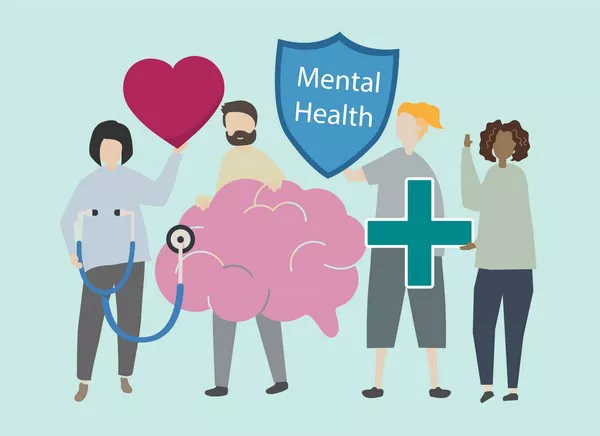Attention Deficit Hyperactivity Disorder (ADHD) is commonly treated with stimulant medications such as methylphenidate and amphetamines. While these medications can significantly improve focus and behavioral control, concerns have arisen regarding potential side effects, including the risk of inducing or exacerbating psychotic disorders like schizophrenia. This article explores the relationship between ADHD medications and schizophrenia, examining the evidence, mechanisms, and implications for individuals with ADHD.
Understanding ADHD and Its Medications
What is ADHD?
Attention Deficit Hyperactivity Disorder is a neurodevelopmental disorder that affects both children and adults. It is characterized by symptoms of inattention, hyperactivity, and impulsivity, which can significantly impact academic, occupational, and social functioning.
Common Medications for ADHD
The primary treatment options for ADHD include:
1. Stimulant Medications
Methylphenidate: Commonly prescribed under various brand names (e.g., Ritalin, Concerta), it works by increasing dopamine levels in the brain to improve attention and focus.
Amphetamines: Includes medications like Adderall and Vyvanse, which also enhance dopamine levels and improve executive functioning.
2. Non-Stimulant Medications
Atomoxetine (Strattera): A selective norepinephrine reuptake inhibitor that is often used in cases where stimulants are ineffective or cause undesirable side effects.
Guanfacine (Intuniv): Primarily used for its calming effects, it can help manage ADHD symptoms without the stimulant-related risks.
Schizophrenia: An Overview
What is Schizophrenia?
Schizophrenia is a chronic and severe mental disorder characterized by disturbances in thought, perception, and behavior. Common symptoms include hallucinations, delusions, disorganized thinking, and negative symptoms (such as lack of motivation or emotional expression). The disorder typically emerges in late adolescence or early adulthood.
Risk Factors for Schizophrenia
Several factors contribute to the development of schizophrenia, including:
Genetic Predisposition: A family history of schizophrenia increases the risk.
Environmental Factors: Prenatal exposure to infections, malnutrition, or psychosocial stressors.
Neurobiological Factors: Abnormalities in brain structure and neurotransmitter systems, particularly dopamine.
See Also: 6 Tips for ADHD Medication For Adults With Bipolar
The Relationship Between ADHD Medications and Schizophrenia
Can ADHD Meds Cause Schizophrenia?
Stimulant medications are effective for treating ADHD but have raised concerns about their potential link to psychotic symptoms. Some studies and case reports suggest that stimulants may induce or worsen psychosis in predisposed individuals.
1. Mechanisms of Action
Stimulant medications primarily increase the levels of dopamine in the brain. While this effect is beneficial for individuals with ADHD, excess dopamine activity is also implicated in the development of psychotic symptoms. This raises concerns that stimulant use may trigger psychosis in vulnerable individuals.
2. Case Reports and Clinical Evidence
A limited number of case studies have documented instances where individuals developed psychotic symptoms after starting stimulant medication. However, these reports often involve patients with pre-existing risk factors for psychosis, such as a family history of schizophrenia or previous episodes of psychosis.
Non-Stimulant Medications and Schizophrenia
Non-stimulant medications, such as atomoxetine and guanfacine, are generally considered to have a lower risk of inducing psychosis. However, research on their long-term effects is still emerging, and vigilance is warranted.
Research Findings on ADHD Medications and Schizophrenia
Epidemiological Studies
Several epidemiological studies have investigated the potential link between ADHD medications and schizophrenia. Findings suggest that:
Increased Risk: Some studies indicate that individuals with ADHD who are treated with stimulant medications may have a slightly increased risk of developing schizophrenia later in life, particularly if they have a family history of the disorder.
No Causative Link Established: Overall, the evidence does not conclusively demonstrate that ADHD medications directly cause schizophrenia. Many individuals with ADHD may already have a predisposition to psychosis.
Longitudinal Studies
Longitudinal studies following children with ADHD into adulthood have provided insights into the long-term effects of medication. Findings indicate:
Symptom Management: Properly managed ADHD with medication can lead to improved social and occupational functioning, potentially reducing the risk of negative outcomes, including psychosis.
Need for Monitoring: Continuous monitoring of mental health symptoms during treatment is essential, especially for individuals with a family history of psychotic disorders.
Clinical Implications
Risk Assessment in ADHD Treatment
When prescribing ADHD medications, healthcare providers should assess the individual patient’s risk factors for psychosis, including:
Family History: A significant history of schizophrenia or other psychotic disorders in immediate family members.
Previous Episodes: Any prior history of psychotic symptoms or severe mood disorders.
Monitoring and Management
Ongoing monitoring of patients on ADHD medications is crucial. This can include:
Regular Check-ups: Frequent evaluations to assess the effectiveness of medication and monitor for any emerging symptoms of psychosis.
Adjustment of Treatment Plans: If symptoms of psychosis arise, healthcare providers should consider adjusting the treatment regimen, which may involve changing medications or incorporating therapy.
Conclusion
The relationship between ADHD medications and schizophrenia remains complex and multifaceted. While there is some evidence suggesting that stimulant medications may increase the risk of psychosis in vulnerable individuals, the majority of studies do not establish a direct causal link. Healthcare providers must carefully assess individual risk factors when prescribing ADHD medications and monitor patients closely for any signs of psychosis. Ultimately, the benefits of managing ADHD symptoms often outweigh the potential risks, provided that proper precautions are taken.
FAQs
1.Can ADHD medications cause schizophrenia?
While there are concerns about stimulant medications potentially triggering psychosis in predisposed individuals, the evidence does not conclusively establish a direct causal link between ADHD medications and schizophrenia.
2.What are the symptoms of schizophrenia?
Common symptoms of schizophrenia include hallucinations, delusions, disorganized thinking, and negative symptoms such as lack of motivation or emotional expression.
3.How can I manage ADHD without medication?
Non-medication approaches include behavioral therapy, psychoeducation, and lifestyle modifications such as regular exercise, a healthy diet, and good sleep hygiene.
4.Should I be concerned if my child is taking ADHD medication?
It is essential to monitor your child’s mental health closely while they are on ADHD medication. Regular check-ups with a healthcare provider can help address any concerns.
Related topics:
What is Adult ADHD: Causes, Myths & Diagnosis
Overcoming Adult Separation Anxiety: A Comprehensive Guide
Navigating Adult ADHD: Impact as a Potential Disability


